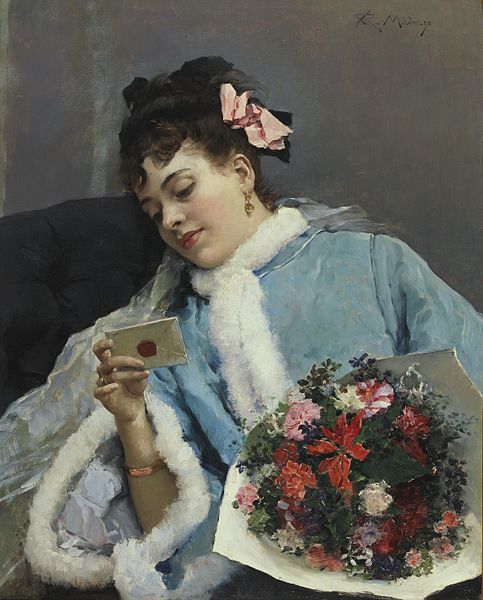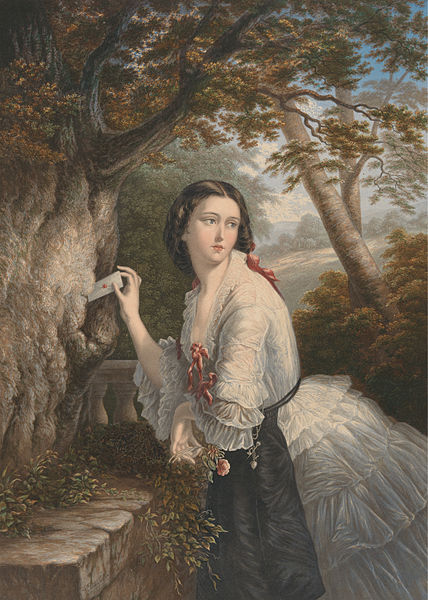
The Thammasat University Library has acquired a new book that should be useful for students interested in literature, gender studies, history, sociology, and related subjects.
Ancient Love Letters: Form, Themes, Approaches is edited by Professor Anna Tiziana Drago of the University of Bari, Italy and Professor Owen Hodkinson of the University of Leeds, United Kingdom.
The TU Library collection includes other books about different aspects of love letters.
As the publisher’s description page explains,
About this book
This volume investigates the form of love letters and erotic letters in Greek and Latin up to the 7th Century CE, encompassing both literary and documentary letters (the latter inscribed and on papyrus), and prose and poetry. The potential for, and utility of treating this large and diverse corpus as a ‘genre’ is examined. To this end, approaches from ancient literary criticism and modern theory of genre are made; mutual influences between the documentary and the literary form are sought; and origins in proto-epistolary poetic texts are examined. In order to examine the boundaries of a form, limit cases, which might have less claim to the label ‘love letter’, are compared with more clear-cut examples. A series of case studies focuses on individual letters and letter-collections. Some case studies situate their subjects within the history and literary evolution of the love letter, using both intertextuality and comparative approaches; others placing them in their cultural and historical contexts, particularly uncovering the contribution of epistolarity to erotic discourse, and to the history of sexuality and gender in diverse eras and locations within Classical to Late Antiquity.
Documents origins and development of the Love Letter in European literature up to the early Middle Ages.
First systematic approach to Love Letters/Erotic Letters in antiquity (Greek and Latin, prose and poetry, literary and documentary letters).

Here are some examples of historical love letters by authors, most of whom are represented in the TU Library collection:
- ABIGAIL ADAMS TO JOHN ADAMS
My Dearest Friend,
…should I draw you the picture of my heart it would be what I hope you would still love though it contained nothing new. The early possession you obtained there, and the absolute power you have obtained over it, leaves not the smallest space unoccupied.
I look back to the early days of our acquaintance and friendship as to the days of love and innocence, and, with an indescribable pleasure, I have seen near a score of years roll over our heads with an affection heightened and improved by time, nor have the dreary years of absence in the smallest degree effaced from my mind the image of the dear untitled man to whom I gave my heart.
Abigail Adams to John Adams, her husband. He became the second president of the United States. Written December 23, 1782
======
- MARY WORDSWORTH TO POET, WILLIAM WORDSWORTH
August 1, 1810
Oh My William! it is not in my power to tell thee how I have been affected by this dearest of all letters – it was so unexpected – so new a thing to see the breathing of thy inmost heart upon paper that I
was quite overpowered, & now that I sit down to answer thee in the loneliness & depth of that love which unites us & which cannot be felt but by ourselves, I am so agitated & my eyes are so bedimmed that I scarcely know how to proceed…
Written by Mary Wordsworth to her husband William Wordsworth.
=======
- MARY WOLLSTONECRAFT
October 4, 1796
I would have liked to have dined with you today, after finishing your essay – that my eyes, and lips, I do not exactly mean my voice, might have told you that they had raised you in my esteem. What a cold word! I would say love, if you will promise not to dispute about its propriety, when I want to express an increasing affection, founded on a more intimate acquaintance with your heart and understanding.
I shall cork up all my kindness – yet the fine volatile essence may fly off in my walk – you know not how much tenderness for you may escape in a voluptuous sigh, should the air, as is often the case, give a pleasurable movement to the sensations, that have been clustering round my heart, as I read this morning – reminding myself, every now and then, that the writer loved me.
Voluptuous is often expressive of a meaning I do not now intend to give, I would describe one of those moments, when the senses are exactly tuned by the ringing tenderness of the heart and according reason entices you to live in the present moment, regardless of the past or future – it is not rapture – it is sublime tranquility.
I have felt it in your arms – hush! Let not the light see, I was going to say hear it – these confessions should only be uttered – you know where, when the curtains are up – and all the world shut out – Ah me!
I wish I may find you at home when I carry this letter to drop it in the box, – that I may drop a kiss with it into your heart, to be embalmed, till me meet, closer.
Mary Wollstonecraft, Anglo-Irish feminist and writer, to William Godwin, philosopher and writer.
=======
- EDITH WHARTON
There would have been the making of an accomplished flirt in me, because my lucidity shows me each move of the game – but that, in the same instant, a reaction of contempt makes me sweep all the counters off the board and cry out: – “Take them all – I don’t want to win – I want to lose everything to you!”
Edith Wharton, an American novelist to W Morton Fullerton, an American journalist, June 8, 1908
=======
- KATHERINE MANSFIELD
January 27, 1918
My love for you tonight is so deep and tender that it seems to be outside myself as well. I am fast shut up like a little lake in the embrace of some big mountains. If you were to climb up the mountains,
you would see me down below, deep and shining – and quite fathomless, my dear. You might drop your heart into me and you’d never hear it touch bottom.
I love you – I love you – Goodnight. Oh Bogey, what it is to love like this!
Katherine Mansfield, writer, to John Middleton Murray
=======
- ELIZABETH BARRETT BROWNING
To Robert Browning:
And now listen to me in turn. You have touched me more profoundly than I thought even you could have touched me – my heart was full when you came here today. Henceforward I am yours for everything….
– Elizabeth Barrett Browning (1806-1861)

(All images courtesy of Wikimedia Commons)
